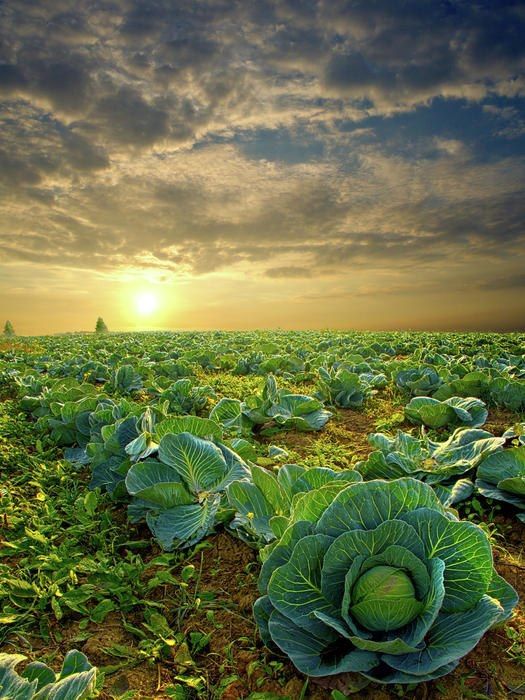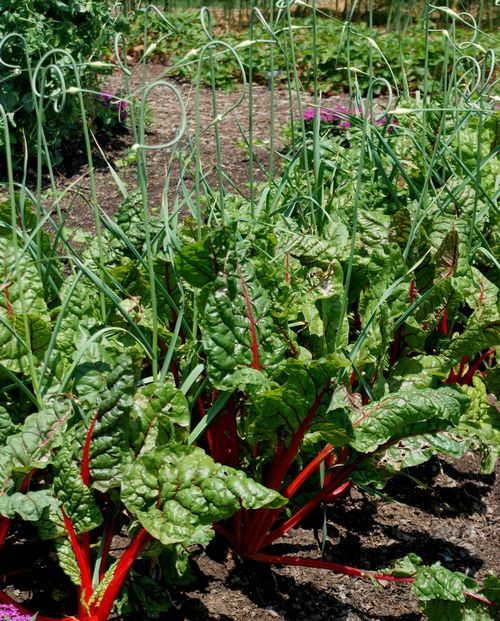Agriculture Business Opportunities: Unlocking the Future with Smart Agriculture
Agriculture Business Opportunities sector is undergoing a transformative shift with the integration of cutting-edge technologies, giving rise to Smart Agriculture. This innovative approach leverages advanced tools like the Internet of Things (IoT), artificial intelligence (AI), big data, and robotics to optimize farming practices. Smart Agriculture promises increased productivity, sustainable resource management, and enhanced food security. This article delves into the business opportunities that Smart Agriculture presents, exploring its benefits, objectives, and the myriad advantages it offers to farmers and entrepreneurs.
Agriculture Business Opportunities Smart Agriculture, also known as precision farming, is a modern farming practice that uses technology to monitor and manage agricultural operations efficiently. By integrating IoT devices, sensors, drones, and AI, farmers can collect real-time data on crop health, soil conditions, weather patterns, and pest infestations. This data-driven approach allows for precise decision-making, resulting in improved crop yields and reduced environmental impact.
Contents
Key Technologies in Smart Agriculture
- IoT and Sensors: IoT devices and sensors are pivotal in Smart Agriculture. They monitor soil moisture, temperature, and nutrient levels, providing real-time data to farmers. This information helps in optimizing irrigation, fertilization, and pest control.
- Drones and Satellite Imaging: Drones and satellites offer aerial views of fields, enabling farmers to assess crop health, detect diseases, and monitor plant growth. High-resolution images and thermal data assist in making informed decisions.
- AI and Machine Learning: AI-powered tools analyze data from various sources to predict weather conditions, recommend planting schedules, and detect anomalies in crop growth. Machine learning algorithms continuously improve these predictions, enhancing farm management.
- Big Data Analytics: Big data platforms aggregate and analyze vast amounts of information from multiple sources. This analysis provides actionable insights into crop performance, market trends, and resource allocation.
- Robotics and Automation: Robots and automated machinery perform tasks such as planting, weeding, and harvesting with precision. This reduces labor costs and increases efficiency.
Business Opportunities in Smart Agriculture
- AgriTech Startups: Agriculture Business Opportunities,Entrepreneurs can develop innovative solutions such as IoT-based soil sensors, AI-driven crop monitoring systems, and automated irrigation controllers. These technologies can be marketed to farmers seeking to modernize their operations.
- Data Analytics Services: Providing data analytics services to farmers can be a lucrative business. By interpreting data from various sources, companies can offer insights that help farmers optimize their practices and increase yields.
- Smart Irrigation Systems: Agriculture Business Opportunities,Developing and selling smart irrigation systems that use real-time data to manage water usage can address water scarcity issues and promote sustainable farming.
- Agricultural Drones: Agriculture Business Opportunities,Offering drone services for crop monitoring, pest control, and aerial mapping can significantly benefit farmers. Drones equipped with advanced sensors can provide detailed insights into field conditions.
- Robotic Farming Equipment: Manufacturing and selling robotic equipment for tasks such as planting, weeding, and harvesting can revolutionize farming operations, making them more efficient and cost-effective.
- Farm Management Software: Creating comprehensive farm management software that integrates data from various sources can help farmers manage their operations more effectively. This software can include features like crop planning, resource management, and market analysis.
Benefits of Smart Agriculture
- Increased Productivity: Agriculture Business Opportunities,Smart Agriculture technologies enable precise monitoring and management of crops, leading to higher yields and better-quality produce.
- Resource Efficiency: Agriculture Business Opportunities,Optimizing the use of water, fertilizers, and pesticides reduces waste and minimizes environmental impact. This sustainable approach conserves resources and lowers operational costs.
- Enhanced Decision-Making: Real-time data and predictive analytics empower farmers to make informed decisions. This reduces risks associated with weather changes, pest outbreaks, and market fluctuations.
- Labor Savings: Automation and robotics reduce the need for manual labor, addressing labor shortages and cutting down operational costs.
- Improved Crop Health: Continuous monitoring and early detection of diseases and pests help in timely intervention, ensuring healthier crops and reducing crop losses.
Objectives of Implementing Smart Agriculture
- Sustainability: Promote sustainable farming practices that conserve resources, protect the environment, and ensure long-term agricultural productivity.
- Food Security: Enhance food production to meet the growing global demand and ensure a stable food supply chain.
- Economic Growth: Agriculture Business Opportunities,Boost the agricultural economy by increasing productivity, creating job opportunities, and fostering innovation in the sector.
- Climate Resilience: Develop farming practices that are resilient to climate change, mitigating the impact of extreme weather events on agriculture.
- Technological Advancement: Drive the adoption of advanced technologies in agriculture, encouraging continuous innovation and improvement.
Explanation of Key Concepts
- Precision Farming Agriculture Business Opportunities: Precision farming involves using technology to measure and manage variability in fields, ensuring that crops receive exactly what they need for optimal growth. This reduces waste and increases efficiency.
- Variable Rate Technology (VRT): VRT allows farmers to apply inputs like fertilizers and pesticides at varying rates across a field based on specific needs. This targeted approach maximizes effectiveness and minimizes environmental impact.
- Remote Sensing: Remote sensing technologies, including drones and satellites, collect data from afar to monitor crop health, soil conditions, and field variability. This information is crucial for making informed management decisions.
- Predictive Analytics: Predictive analytics uses historical data and machine learning algorithms to forecast future trends and outcomes. In agriculture, this helps in anticipating weather patterns, pest outbreaks, and market demands.
Usefulness of Smart Agriculture
- Yield Optimization: Agriculture Business Opportunities,By precisely managing inputs and monitoring crop conditions, Smart Agriculture helps farmers achieve optimal yields, maximizing their return on investment.
- Cost Reduction: Efficient resource management and automation reduce operational costs, making farming more profitable and sustainable.
- Environmental Conservation: Smart Agriculture practices minimize the use of chemicals and water, reducing pollution and conserving natural resources.
- Risk Management: Access to real-time data and predictive insights allows farmers to proactively address risks, such as pest infestations and adverse weather conditions, safeguarding their crops and income.
Advantages of Embracing Smart Agriculture
- Competitive Edge: Farmers who adopt Smart Agriculture gain a competitive advantage by producing higher-quality crops more efficiently. This can lead to better market positioning and increased profitability.
- Sustainability Goals: Implementing sustainable farming practices aligns with global sustainability goals, attracting support from governments, NGOs, and consumers who prioritize eco-friendly products.
- Scalability: Smart Agriculture solutions can be scaled to suit farms of various sizes, from small family-owned farms to large commercial operations. This flexibility makes it accessible to a wide range of farmers.
- Data-Driven Insights: Continuous data collection and analysis provide valuable insights that can be used to refine farming practices, improve crop varieties, and develop new agricultural technologies.
- Innovation Opportunities: Agriculture Business Opportunities,The integration of technology in agriculture opens up numerous opportunities for innovation, from developing new crop varieties to creating advanced farming equipment.
Agriculture Business Opportunities Smart Agriculture represents the future of farming, offering numerous business opportunities for entrepreneurs and farmers alike. By embracing advanced technologies, the agricultural sector can achieve unprecedented levels of productivity, sustainability, and profitability. The benefits of Smart Agriculture extend beyond individual farms, contributing to global food security and environmental conservation. As technology continues to evolve, the potential for innovation in agriculture is limitless, promising a brighter and more sustainable future for the industry.




